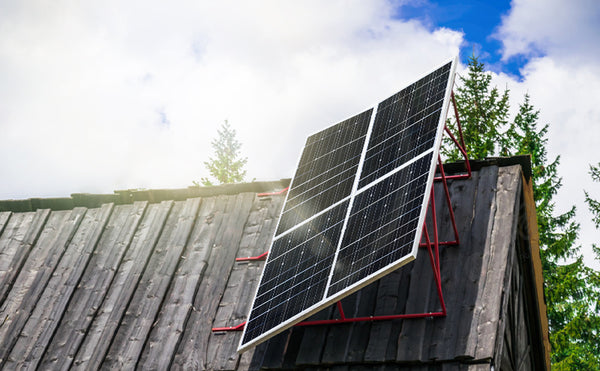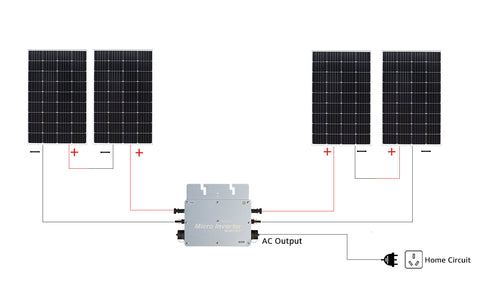
Seven “Must-Know” about Emergency Solar Power

As we all know that solar energy is now the most abundant resources on the planet. Solar power can also achieve your energy independence. And Whether disasters take the form of hurricanes, wildfires, or snowstorms, they all have the power to take down powerlines or make powerplants inoperable. When this happens, emergency solar power can be a lifesaver. Even so, most homeowners invest in a backup generator that runs on gas, diesel, or propane. Has solar energy advanced far enough for you to trust that it will work in an emergency?
1: The type of emergency makes a difference
From record-heat waves in Alaska to snowstorms in Texas, it’s become impossible to predict what weather conditions might look like anywhere. You likely have an idea of the natural disasters that affect your area. When planning for your emergency solar power system, keep these in mind. For example, if your area experiences snowstorms, you might find it helpful to keep your panels at ground level. This makes it easier to clear away the snow or ice.
2: Solar power is more reliable than grid
Solar is Earth’s most abundant resource. Therefore, solar systems have a much lower likelihood of failing than the power grid. The lines that connect your home to the solar do not travel for miles and miles. Instead, most or all of it is contained on your property. This means that an event happening across the street is unlikely to affect your solar power grid. You can also expect reliable performance from your batteries if you keep them charged and follow the manufacturer’s recommendations. Be sure to stick to well-known brands with a reputation for good warranties and customer service.
3: Self-sustaining emergency solar power systems work best
The best emergency solar systems are the ones you design to be self-sustaining. Your batteries should receive a trickle charge from your solar panels, even if you remain tied to the grid. Then, when the power goes out, the emergency system comes on automatically. Taking the manual work out of your emergency system ensures that it works. Imagine what might happen if you were away from home during a wildfire, and the fridge, home security, and outdoor fire sprinklers failed to come on because no one switched to emergency backup power.
4: Grid-tied systems could stop working during emergencies
When it comes to solar, homeowners often debate whether to remain connected to the grid. In some jurisdictions, the answer could become an easy one. During a power outage, connecting to the grid for net metering could paralyze your solar panels. If solar panels continued to pump electricity into the grid, workers attempting to do maintenance work could become electrocuted. Consequently, homeowners should either set up a backup system separate from the grid or create a switch that disconnects the system from the grid.
5: Community investments improve solar accessibility
Community solar is becoming increasingly popular across the country. It makes solar a more feasible option for homeowners who could not otherwise afford the cost alone. It also makes it more accessible to homeowners who might not have enough room on their properties to support a massive solar array. When you use community solar for emergencies, invest in a big battery bank and supplementary systems. This ensures that you have storage and additional options if your neighbors burn through the capacity quickly once disconnected from the grid.
6: You need to choose the essentials
Take some time to decide which functions in the home are indispensable during an emergency. Remember that the fewer items you add to your backup system, the longer it can last. Consider these items and functions above all others:
·Refrigeration to prevent food spoilage and potential food poisoning;
·Energy-efficient cooling or heating during severe temperatures;
·Home monitoring and security to protect the home and its occupants;
·12-volt outlets to provide USB and USB-C charging for devices;
·Interior and exterior lighting;
7: You can include independent micro solar systems
Create even more capacity in your emergency solar backup system by using smaller, independent systems. These rely on solar but do not tap into the central power bank. Consider the following additions to your emergency solar power system:
·Solar-powered water heater
·Solar-powered lights
·Solar-charged surveillance cameras
·Solar ovens for cooking
·Small solar battery packs or small solar generators
Are you ready to create your emergency solar power system? We at XINPUGUANG can help you design your system. We can then ship the parts and walk you through the installation process. Request your quote to get started!
Facebook: Xinpuguang Solar Panel
Instagram: xinpuguangsolar
Pinterest: XinpuguangSolarPanels
Homepage: https://xinpuguangsolar.com
Email address: Philip@isolarparts

- Als u een selectie kiest, wordt de pagina volledig vernieuwd.

